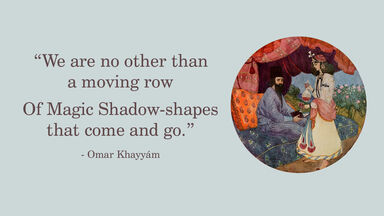It is perhaps on account of this intermediate flavour that the literature of Persia - for instance the adaptations of Omar Khayyam - is more appreciated in Europe than that of other Oriental nations.
On the Arab invasion this work was in great danger of perishing at the hands of the iconclastic caliph Omar and his generals, but it was fortunately preserved; and we find it in the 2nd century of the Hegira being paraphrased in Arabic by Abdallah ibn el Mokaffa, a learned Persian who had embraced Islam.
The Acciajuoli dynasty lasted till June 1458, when the Acropolis after a stubborn resistance was taken by the Turks under Omar, the general of the sultan Mahommed II., who had occupied the lower city in 1456.
Notwithstanding the losses that the city had sustained, `Amr was able to write to his master, the caliph Omar, that he had taken a city containing "4000 palaces, 4000 baths, 12,000 dealers in fresh oil, 12,000 gardeners, 40,000 Jews who pay tribute, 400 theatres or places of amusement."
Omar, on hearing the request of his general, is said to have replied that if those books contained the same doctrine with the Koran, they could be of no use, since the Koran contained all necessary truths; but if they contained anything contrary to that book, they ought to be destroyed; and therefore, whatever their contents were, he ordered them to be burnt.


